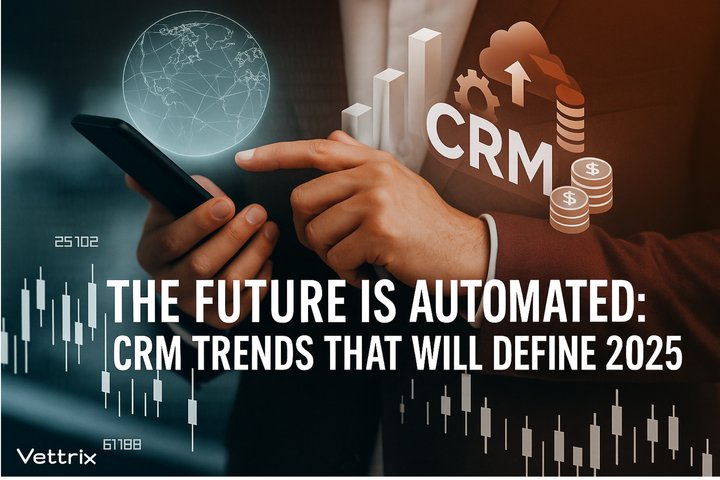The New CRM Playbook: Trends That Will Shape 2025

The CRM landscape is evolving at a rapid pace, driven by AI, mobility, and the demand for seamless digital experiences. Here's a look at the top 10 CRM trends that will define the year 2025:
1. AI-Powered Personalization
Artificial Intelligence is transforming CRM into a predictive powerhouse. In 2025, CRM platforms will use advanced AI algorithms to analyze customer behavior and anticipate needs before they arise. Sales teams will be able to offer highly personalized, proactive solutions—dramatically increasing engagement and conversion rates.
2. Voice-First CRM Interfaces
Voice technology is changing how professionals interact with CRM systems. By 2025, voice commands will become the primary method for updating records, scheduling tasks, and accessing customer information. This hands-free experience ensures real-time updates and boosts productivity, especially during or right after client meetings.
3. Mobile-First CRM Design
Mobility is now a priority. CRM systems are shifting toward mobile-first design, recognizing the need for on-the-go access. Sales reps can update and retrieve customer data from anywhere—on-site, during commutes, or between meetings—ensuring they never miss a beat.
4. Embedded Analytics and Insights
CRM platforms are evolving into strategic decision-making tools. In 2025, expect real-time analytics and AI-generated insights directly within CRM interfaces. Sales teams will receive intelligent recommendations for next-best actions, pricing strategies, and upselling opportunities—powered by continuous data analysis.
5. Seamless Omnichannel Integration
Customer interactions are no longer confined to one channel. Modern CRMs will unify data across all touchpoints—digital, in-person, social media, and more—providing a 360-degree view of the customer. This ensures consistent, personalized experiences across every platform.
6. Privacy-Centric CRM Design
With tightening global privacy laws, CRMs will prioritize data protection. In 2025, expect built-in compliance tools, transparent data usage policies, and features that empower customers to control their personal data. Privacy-by-design will become a standard requirement.
7. Low-Code/No-Code Customization
CRM customization is becoming more accessible. Low-code and no-code platforms enable business users—not just IT teams—to build workflows, automate tasks, and tailor interfaces. This democratization increases agility and adoption across departments.
8. IoT-Driven Customer Intelligence
The Internet of Things (IoT) is opening new data frontiers. Smart devices will feed real-time usage data directly into CRM systems, allowing companies to understand how products are used—and respond with timely service or product improvements.
9. Industry-Specific CRM Solutions
The era of one-size-fits-all CRMs is fading. By 2025, more businesses will adopt vertical-specific CRM platforms tailored to industries like healthcare, finance, or manufacturing. These systems come with pre-built compliance features, workflows, and dashboards, accelerating setup and boosting relevance.
10. Augmented Reality (AR) Integration
AR is making waves in CRM. In the coming year, advanced CRM platforms will include AR tools to deliver immersive product demos, visualize installations, or simulate customer environments—especially useful in complex B2B sales scenarios.